Quadball is a competitive sport growing rapidly around the world, played by all ages from school-age children to adults. Originally based on the fictional sport Quidditch in the Harry Potter series, quidditch was adapted to a physical and tactical sport while maintaining the spirit of the source material by fans in 2005. It has since grown into a worldwide phenomenon and is the one of the few mixed-gender full contact sports. In 2022, quidditch changed its name to quadball. Quadball is played in over 30 countries and governed by the International Quadball Association (IQA).
How to Play Quadball
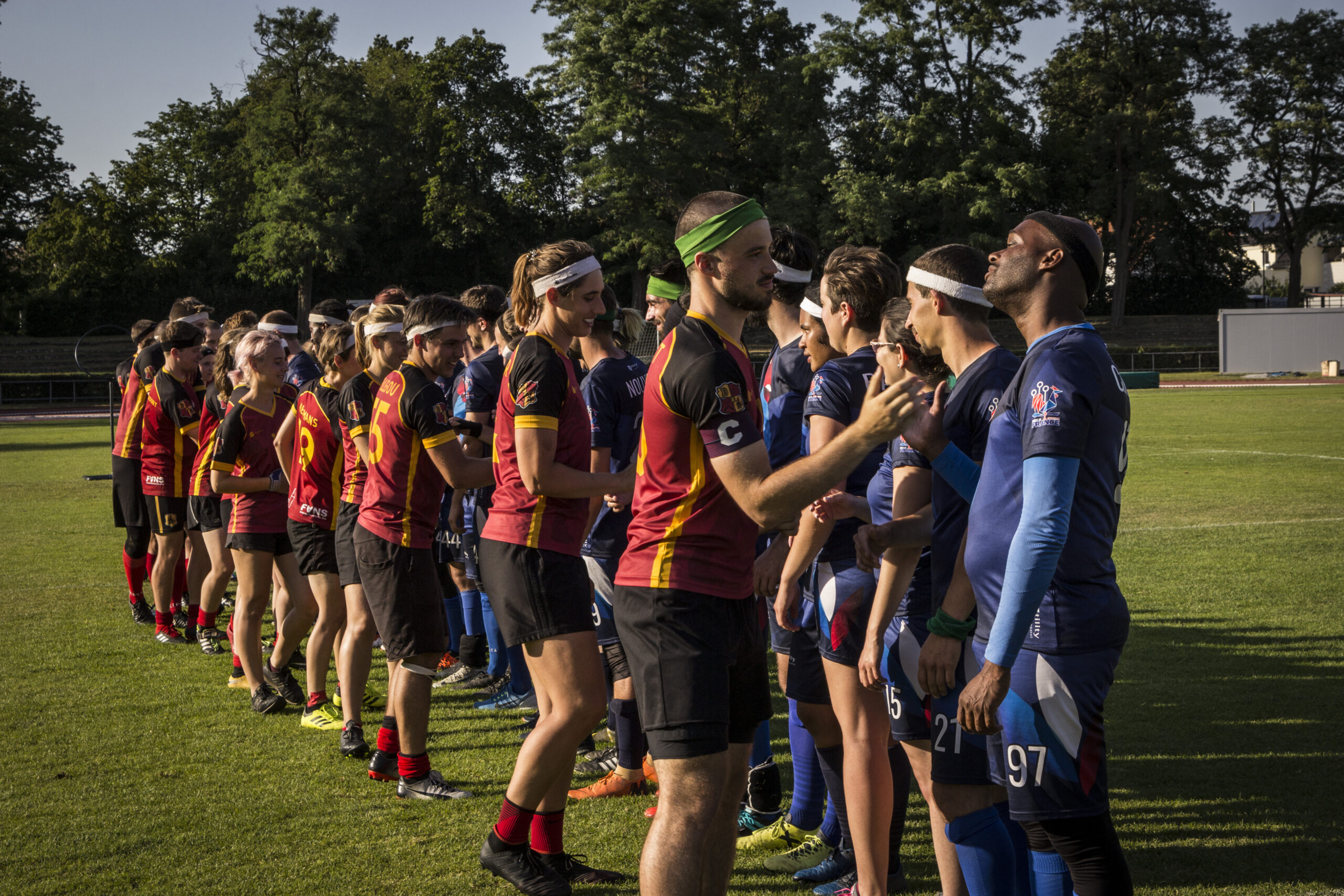
The team
Quadball teams have up to 21 players, with up to 7 players on pitch at any time.
Individual players rotate throughout the game, with substitutions constantly happening. Teams can have a maximum of 3 players of the same gender on pitch at the same time.
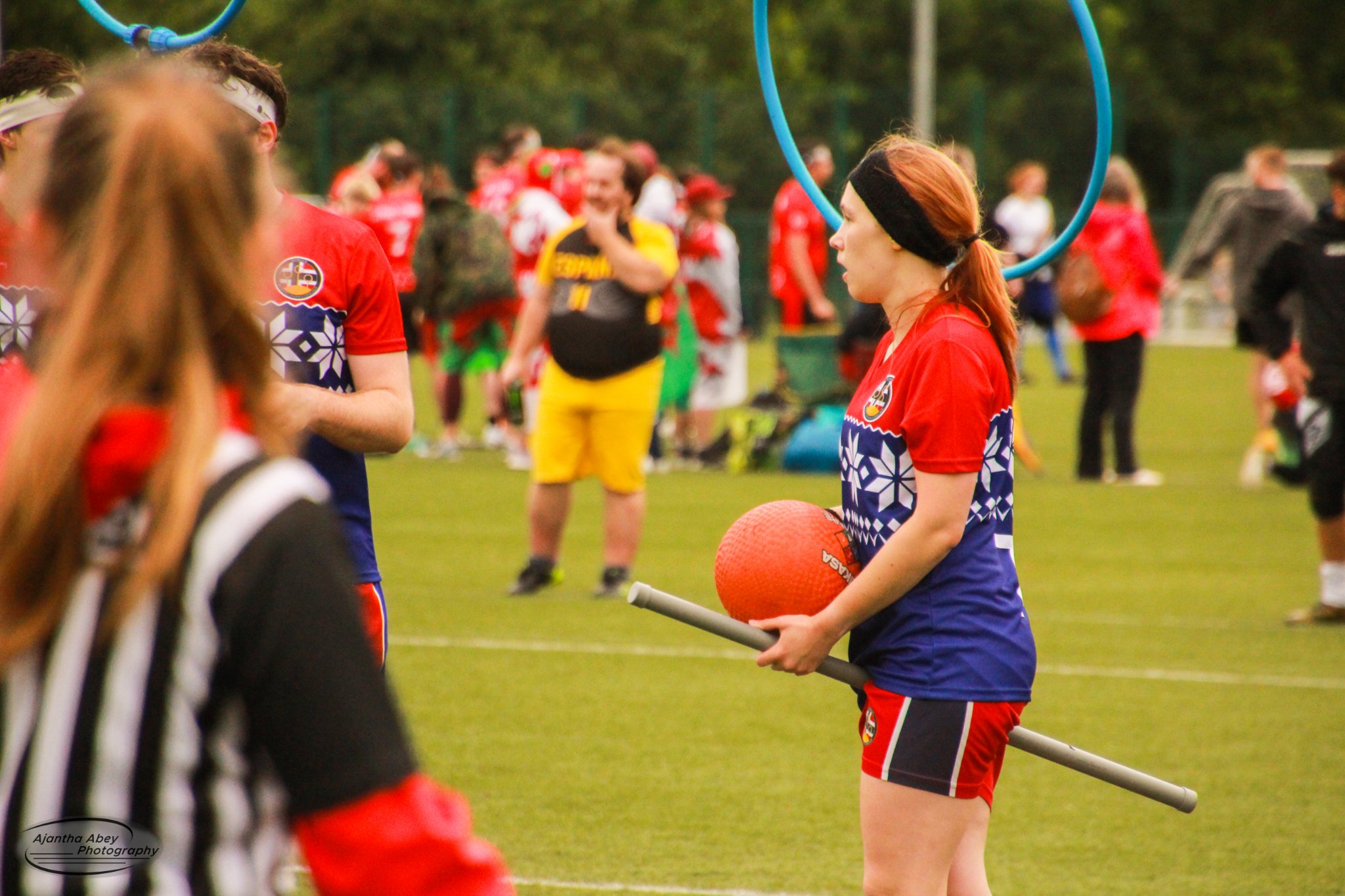
The players
The role you play is shown by the colour of your headband.
Teams will have:
- 1 keeper, wearing a green headband
- 3 chasers, wearing white headbands
- 2 beaters, wearing black headbads
- 1 seeker, wearing a yellow headband
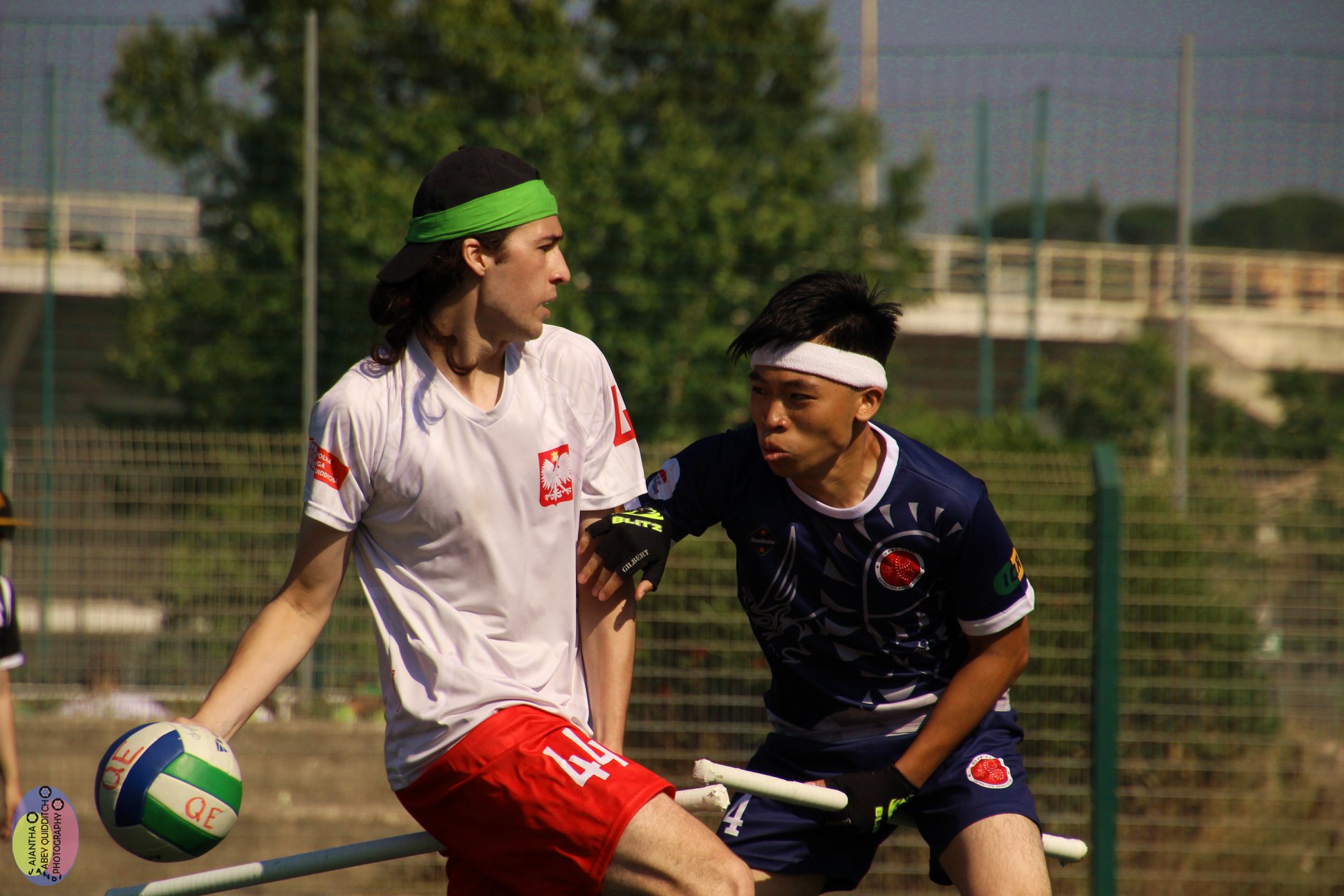
Keepers and Chasers
Chasers and Keepers pass the volleyball between them and attempt to score through one of three hoops at their opponents end of the pitch for 10 points.
The opposing Chasers and Keeper defend their hoops by tackling players and intercepting the ball.
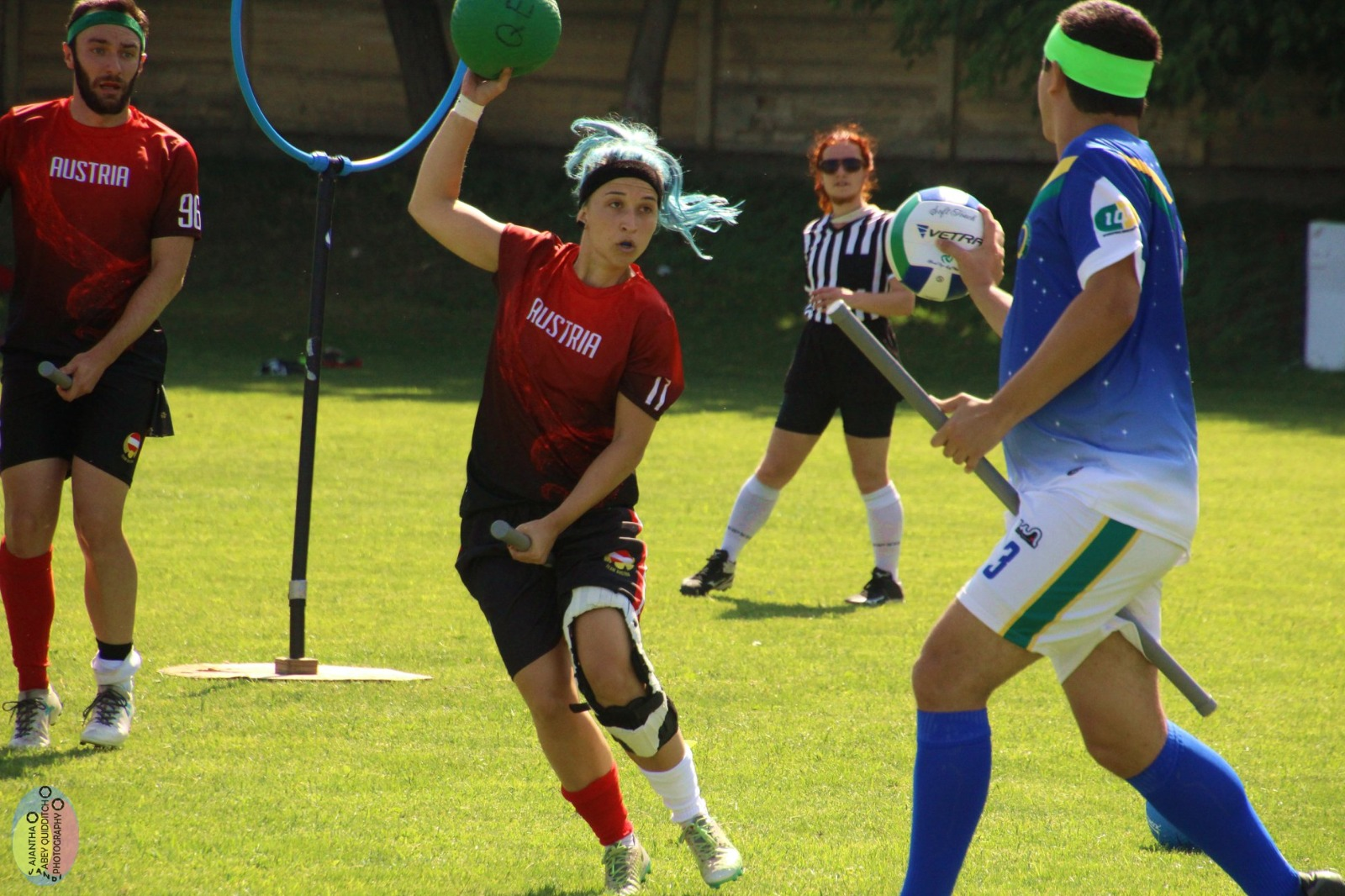
Beaters
Beaters throw dodgeballs to ‘knock out’ opposition players.
Players hit by a dodgeball thrown by a beater on the opposing team must drop any ball they are carrying, dismount their broom, and run back to their own hoops before they can rejoin the game.
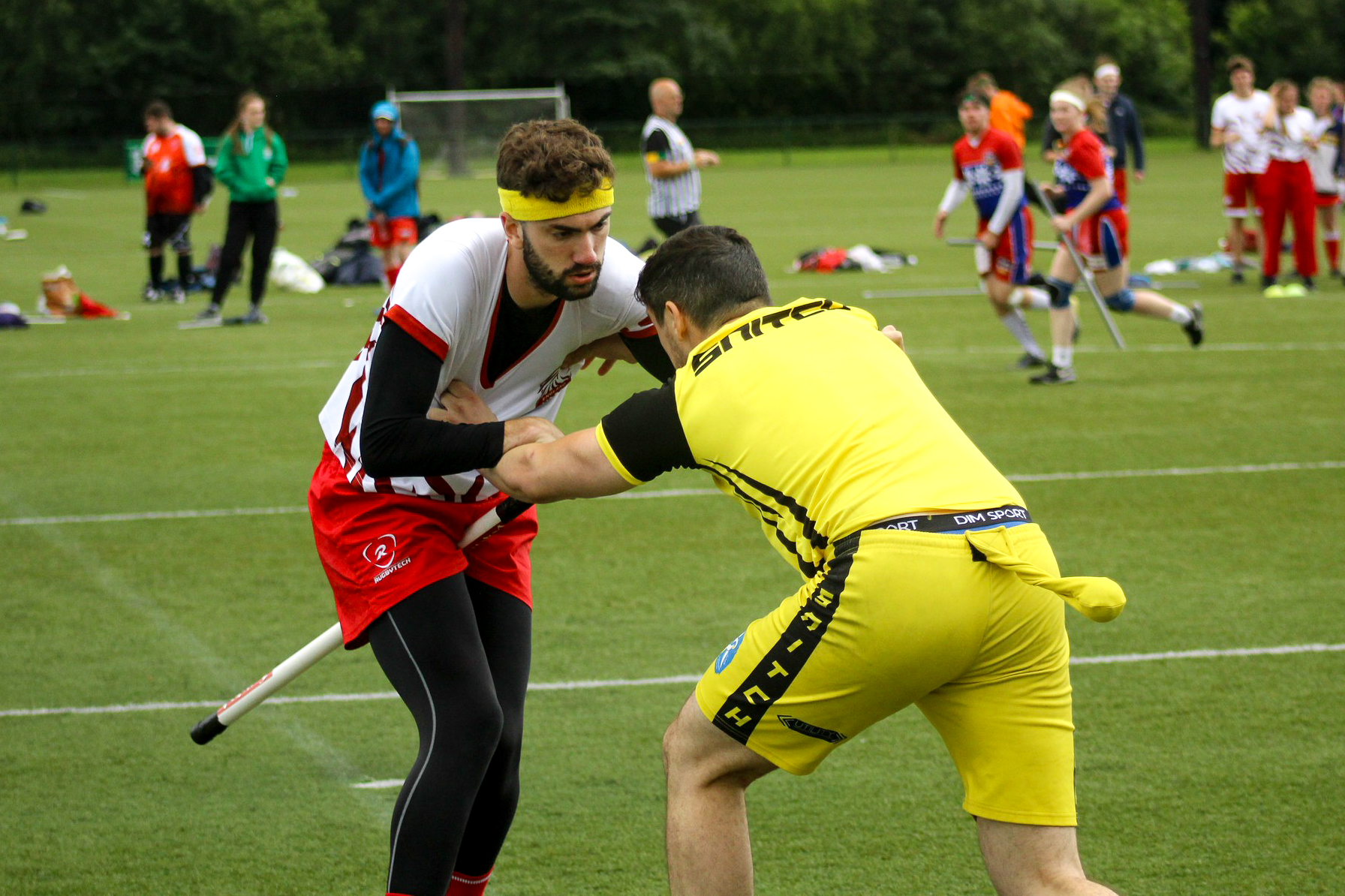
Seekers
Seekers try to catch the flag, a tail attached to an impartial referee known as the Flag Runner, for 30 points.
If the team who catches the flag has the most points after they catch, the game ends. Otherwise, the game continues to overtime.
The Rulebook
Check out the full rulebook to learn to play or prepare for your referee certification.
The Equipment
When you play, you’ll use:
- Volleyball (1) – slightly deflated for grip
- Dodgeballs (3) – made of rubber and slightly deflated for grip
- Flag – you could use snitch shorts or put a tennis ball into a long football sock and tucking this into a pair of shorts
- Headbands – used to identify player roles, most countries use green (keepers), white (chasers), black (beaters), and yellow (seekers)
- Brooms – long straight poles made from PVC plastic, fibreglass, or the classic wood, brooms are typically just under a meter long and capped on either end for safety
- Hoops – used in sets of three, mounted on poles ranging in height from 180cm to 90cm, and set in the ground with either spikes or weighted bases
Simple brooms and hoops can be made cheaply from typical hardware store plumbing supplies.
How did Quadball/Quidditch Start?
One afternoon in 2005, two students at Middlebury College in Vermont, USA, Xander Manshel and Alex Benepe, decided that rather than playing bocce, they would have a go trying to play quidditch instead. Because why not?
With a group of friends, taking a lot of the rules from the Potter novels, they created the very first version of real-life quidditch. Gradually, they codified the rules as news spread and others schools heard about it and their regular intramural games. Two years later in 2007 came the first intercollegiate match. From there, quidditch really took off. In July 2022, quidditch changed its name to quadball.
A Brief History of International Quadball
Just a year after the first intercollegiate match saw the first international quidditch games, with a “World Cup” championship featuring 11 US college teams and one team from Canada. As the game grew in the US and Canada, the IQA was founded to govern the sport and was incorporated into a NFP business in 2010. The ‘Quidditch World Cup’ was held annually in the US, featuring rapidly increasing numbers of college and community teams from around the States, with the odd other team from Canada, France, and even Finland. By 2011, World Cup V in New York featured 96 teams and 10,000 ticketed spectators.
2012 saw the first proper world cup, called the Summer Games, and held in Oxford to coincide with the Olympics and raise awareness for the sport. It was contested by national teams from the US, Canada, Australia, France, and the UK, with the US coming out dominant. This kick-started the rapid development of quidditch throughout Europe.
By 2014, the sport had become significantly international and the predominantly US based IQA then split into US Quidditch and a truly international IQA. This was also the last year where the US ‘World Cup’ was called such, and the last year where international teams were invited.
2014 also saw the second tournament held between national teams from around the world, where 7 countries (the original five plus Belgium and Mexico) converged on Burnaby, Canada, to compete in the Global Games. The US also dominated this tournament.
Two years later saw the 2016 IQA Quidditch World Cup, a landmark event in the history of the sport, held in Frankfurt, Germany. The tournament now featured 21 teams from 5 continents, and saw the first time in history where the US was defeated, with the Australian Dropbears winning the grand final 150*-130.
From there, quidditch has only continued to grow, as more and more countries in the Asia-Pacific region began taking up the sport as well and growing to a level of prominence that allowed them to compete in the 2018 World Cup, held in Florence, Italy. The US regained their dominance in the grand final against Belgium.
In July 2022, USQ, MLQ and IQA decided to change the name from quidditch to quadball in order to let the sport grow even further.
Today there are over 30 official member nations in the IQA, each officiating tournaments and gameplay in their own countries, with quadball also being played in smaller scales in many more countries all over the world.
Ready to get involved?
At the IQA, we’re working to develop and grow quadball across the world. Whether you’re from an existing NGB or looking to play for the first time you can find out more below.

Contact us
Whether you're just starting your quadball journey or looking for support to develop quadball in your region, let us know.
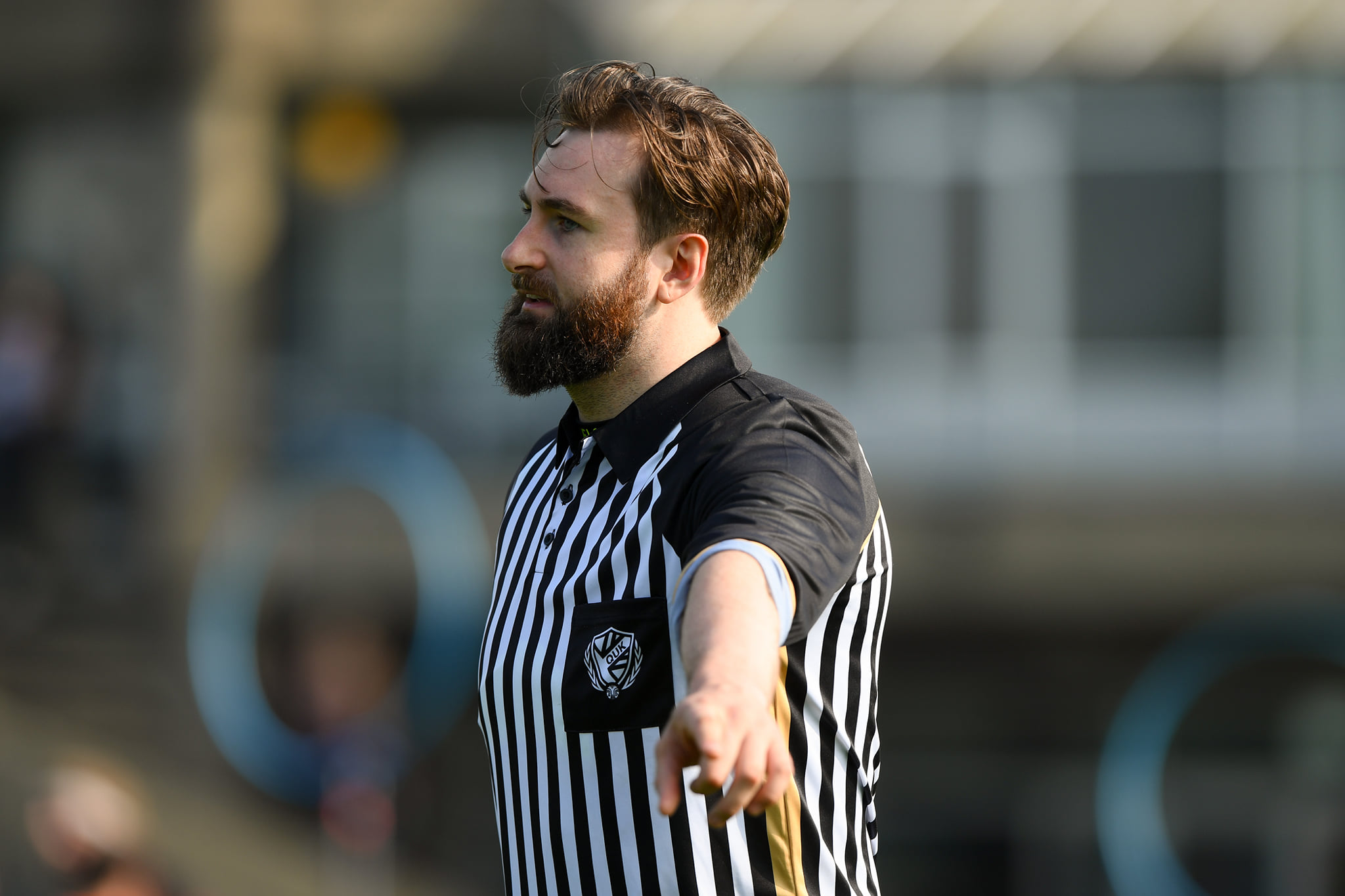
Quadball Rulebook
Download our latest IQA rulebook to start learning, and browse our rulebook translations.
